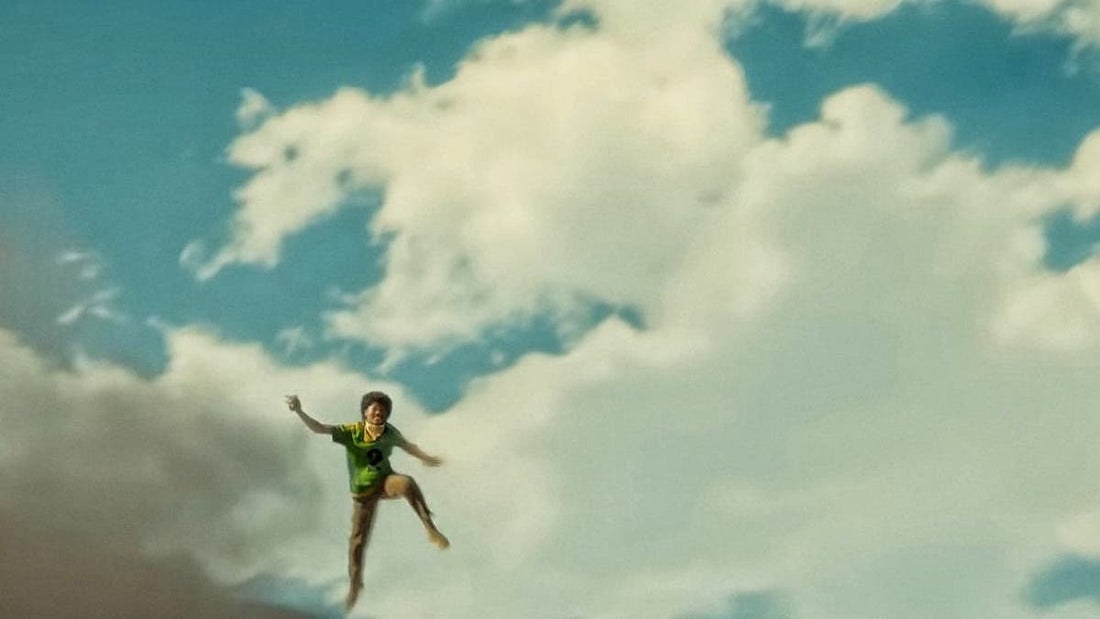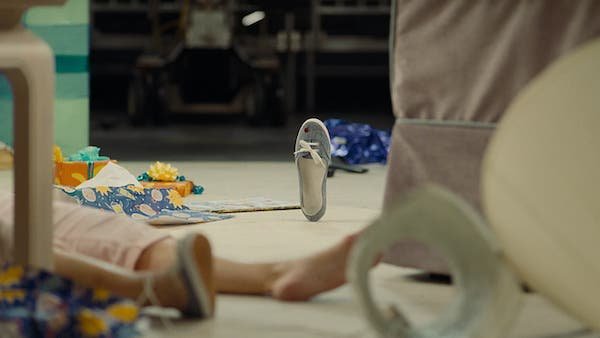How can you ever feel like your pain is worthwhile? Is it about healing, or charging? Jordan Peele’s Nope wrestles with the complicated implications of making money off our own suffering – but Sierra Swan, having just finished her cancer treatment, wonders about the effects of this pressure.
After completing a 10-month-long cancer treatment and hitting the “now what” phase of life, my first instinct, truthfully, was to find a way to profit off of it. There are countless cancer stories in movies, TV shows, books. Why couldn’t I turn my own story into something profitable, too? But somehow it was Jordan Peele’s sci-fi thriller Nope, which has all the jump scares and socio-political commentary I expected, which offered a devastating look at the commodification of suffering that I didn’t expect. I keep coming back to this film, and what it takes to offer up our trauma for a paycheck.
After the death of their father, siblings Emerald and OJ Haywood (played by Keke Palmer and Daniel Kaluuya) are left with the ranch and the family business Hayward Hollywood Horses. When a freak power outage happens at the ranch and nearby attraction Jupiter’s Landing, they discover there’s something not quite right. A “bad miracle.” After picking up some camera gear, the Haywoods decide they’ll catch this impossibility on film and share it with the world – and finally get paid what they deserve.
It’s easy to consider commodifying your experience when you haven’t actually tried to find the right way to get people to pay attention to what you’re turning tangible. There’s no real consideration on the outcome of living through the event you’re trying to profit off of. I could try writing a book or make some type of social media account to share my journey. But to make money, I’d have to promote what I was in the middle of disassociating from. But like Em, I thought it would be easy. Just get the Oprah shot. Somebody will pay.
Em and OJ realize getting this job is going to be a lot more than they bargained for, their hands and home soon covered in the blood of about two dozen people – and a horse. But they’re too far in it to not come out ahead. If the alien wins, they die and it doesn’t matter what they’ve lost. If they win, they will reap those benefits for the rest of their lives. They couldn’t lose everything and not have a picture. I couldn’t lose my hair and breasts and not have something compelling to show.
Which leads me to Gordy.
“Six minute and 13 seconds of havoc” turn into a lifetime of profit for child actor-turned-entertaining businessman Ricky (Steven Yeun). Gordy, the loveable chimp and namesake of the ‘90s sitcom Gordy’s Home gets triggered by a popped balloon during the broadcasting of an episode in front of a live audience. What follows is the horrific mauling of Ricky’s other child actor co-star, and with a quickly abandoned soundstage full of sweaters still in chairs and the “APPLAUSE” light still blinking, all that’s left is Ricky; a terrified child hiding under a table, a deafening silence save for Gordy’s chewing, and a bloodied tennis shoe balancing on its heel.
Rather than leaving this traumatic experience behind him, as an adult, Ricky turns it into a little museum with an entrance fee. The small, secret room is filled with memorabilia from the TV show, but two things stand out. The balancing shoe in a glass case, still bloody and on vertical, and a framed MAD Magazine cover mocking the tragic event. Two wildly different symbols of Ricky’s pain, what he’s been left with versus what the world received. The idea of a chimp going into a frenzy on set might have potential to become a funny bit in some circles. But after the screams, it was silent. It was still. Ricky was stuck waiting for Gordy to finish, frozen. And that stayed with him for 15 years.
By charging others to study his pain, Ricky can finally see some people believe this event was worth something. It sparks curiosity in the same way people slow down on the freeway to gawk at an accident. But Ricky has the power. He controls who sees, and how. There are people who want to know all the sad and scary details – they want a second hand experience of a tragedy they get to walk away from and forget. Ricky can cash in on his horrendous experience, but at the cost of keeping it memorialized and perpetuating his suffering forever.
Ricky is unable to recognize that preserving his pain in a glass box is causing more harm than profit. the kid under the table, he is now the ringleader orchestrating what the adults around him couldn’t manage to pull off in his childhood. He’s designing an entire show around taming a wild creature. He is controlling the uncontrollable. Well, until he isn’t.
The pressure I put on myself to transform my suffering so good can come from it is ultimately bizarre and rooted in the idea that as long as we're getting money, who cares what we’re going through. And yet. Here I am, reflecting on the last year of my life, comparing my cancer to an alien and a bloody shoe in a box.
Sierra Swan (she/her) is an LA based writer following the pursuit of happiness and talking more about movies. In her free time she likes indulging in a seasonal coffee, rewatching a J.Lo rom-com, and writing movies of her own.



